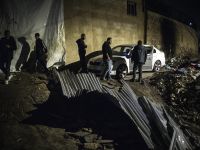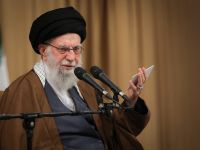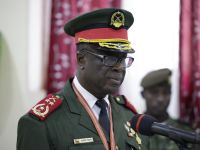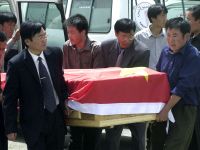The Security Council unanimously approved a tough new Iraq resolution Friday, aimed at forcing Saddam Hussein to disarm or face "serious consequences".
The vote came after eight weeks of tumultuous negotiations and was seen as a victory for the United States, which drafted the resolution together with Britain. U.S. President Bush immediately went to the White House Rose Garden to warn Saddam Hussein the comply at once. "His cooperation must be prompt and unconditional or he will face severest consequences," Bush said in the White House Rose Garden.
The unanimous vote came as a surprise with support coming even from Syria. In remarks after the vote, U.S. Ambassador John Negroponte said, "This resolution is designed to test Iraq's intentions."
Negroponte said the resolution gives international inspectors broad authority to look for Iraq's weapons of mass destruction — to check "anyone, anywhere, anytime."
There are "no hidden triggers" for the automatic use of force against Iraq if it does not comply with the resolution, Negroponte said, noting that should the inspectors report Iraqi violations, the matter would return to the Security Council. The resolution, he said, is "a new powerful mandate" for the weapons inspectors.
"This resolution does not constrain any member state from acting to defend itself from the threat posed by Iraq.... to the government of Iraq our message is simple: non-compliance is no longer an option," he said.
Secretary General Kofi Annan said Baghdad should comply for the sake of the Iraqi people. "Iraq has a new opportunity to comply with all these relevant resolutions of the Security Council. I urge the Iraqi leadership for sake of its own people...to seize this opportunity and thereby begin to end the isolation and suffering of the Iraqi people."
"This resolution is a success for the Security Council and the United Nations," said France's U.N. Ambassador Jean-David Levitte, according to AP. "This success must now become a success for peace." But Iraq "must understand that this opportunity is the final one," he said.
The new resolution requires U.N. weapons inspectors to make an assessment of any Iraqi violations.
According to a strict timeline in the resolution, Iraq would have seven days to accept the resolution's terms and 30 days to declare all its chemical, biological and nuclear programs. (Albawaba.com)
© 2002 Al Bawaba (www.albawaba.com)







